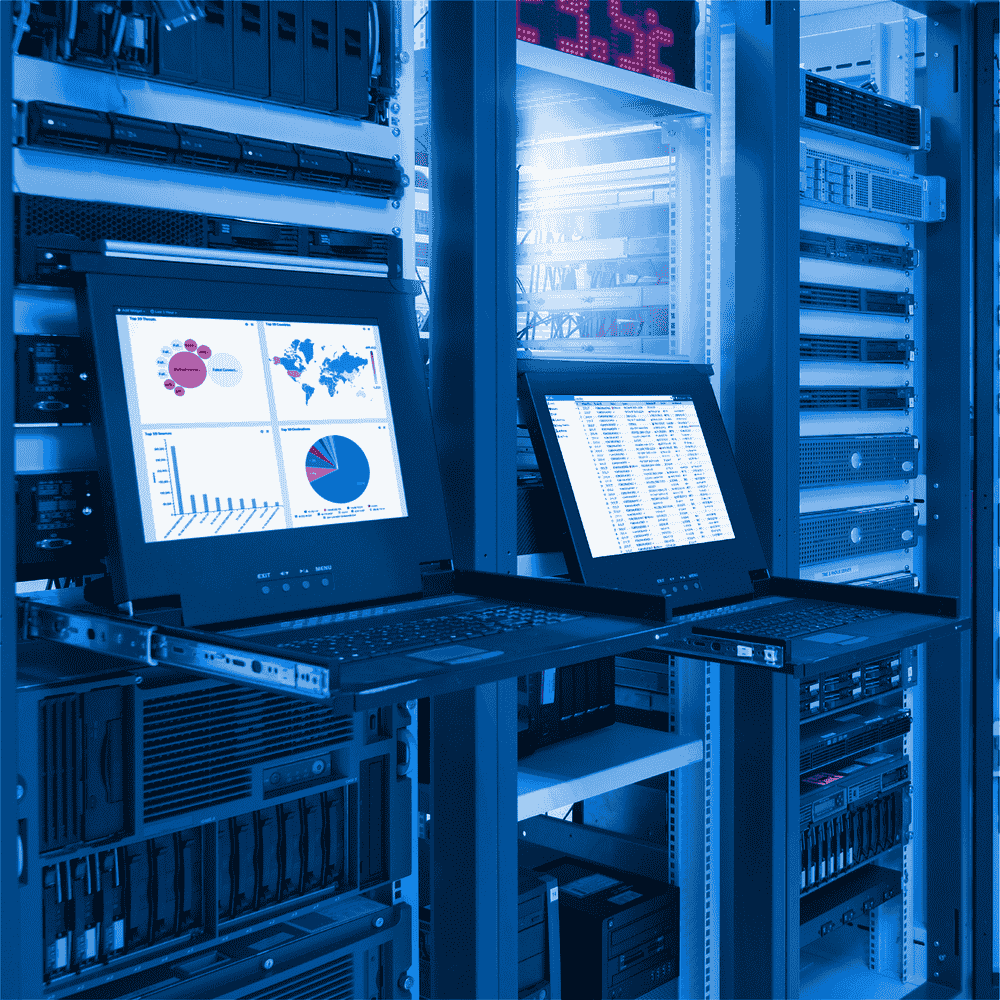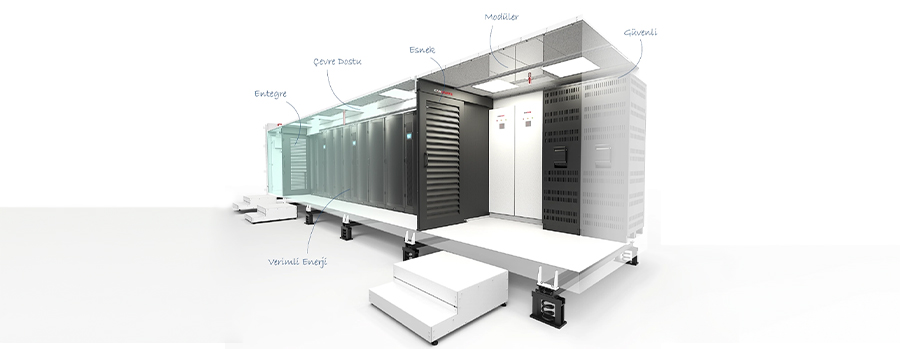Container Data Centers: Mobile, Flexible, and Rapid Solutions
As digitalization rapidly expands, the demand for data centers continues to grow. However, setting up traditional data centers can be time-consuming and costly. In response, container data centers have emerged as a flexible, quickly deployable, and portable alternative to conventional data centers. These containerized solutions are ideal for businesses that require mobility, adaptability, and rapid deployment.
What is a Container Data Center?
A container data center is a modular data center housed within a standard shipping container. These units encompass all the essential infrastructure elements of a traditional data center, including servers, storage devices, cooling systems, power distribution units, and security features. Container data centers can be quickly deployed and relocated as needed. Their modular design also makes them highly scalable, allowing for easy expansion as business needs grow.
Container data centers are often preferred in industrial facilities requiring rapid on-site installation, remote locations, or temporary solutions during emergencies. In today’s world, where data needs are rising rapidly, container data centers provide an appealing solution for businesses seeking flexibility, mobility, and quick deployment.
Advantages of Container Data Centers
Rapid Installation: Container data centers can be set up much faster than traditional data centers, with deployment possible within weeks to meet urgent data processing demands.
Mobility and Portability: With their mobile structure, container data centers can be transported to any location, making them ideal for fieldwork or use in remote areas.
Flexibility and Scalability: Their modular structure enables easy expansion as business needs grow, allowing additional containers to be added seamlessly.
Cost Savings: Container data centers incur lower construction costs compared to traditional data centers. Additionally, their energy-efficient design reduces operational costs.
Energy Efficiency: Integrated with efficient cooling systems, container data centers consume less energy, reducing long-term costs and environmental impact.
Durability and Security: Designed for outdoor environments, container data centers are waterproof, dustproof, and impact-resistant, ensuring reliable performance even in challenging conditions.
Emergency and Temporary Solutions: Container data centers can be quickly deployed in response to natural disasters, conflicts, or urgent data needs, providing essential data processing capacity in crisis situations.
Applications of Container Data Centers
Industrial Facilities: Ideal for large industrial sites, such as oil, gas, and energy production facilities, container data centers support field operations and meet data processing needs on-site.
Telecommunications: Telecom operators can deploy container data centers in remote areas to quickly establish broadband services and handle temporary data processing requirements.
Financial Services: Financial institutions can utilize container data centers to accommodate sudden spikes in data processing demands, ensuring business continuity.
Military and Defense: Container data centers provide secure data processing solutions for mobile operations in military environments, such as border areas or conflict zones.
Smart City Projects: Smart city initiatives, with numerous IoT devices and sensors, benefit from container data centers integrated into urban infrastructure to manage large data flows.
Disaster Response and Emergency Situations: Container data centers can be rapidly deployed during natural disasters, providing uninterrupted data processing capacity to support crisis management.
Installation and Management of Container Data Centers
Quick Setup and Deployment: Container data centers offer a “plug-and-play” setup. After placement, only electrical and network connections are needed for rapid operation.
Cooling and Power Management: Equipped with integrated cooling and energy-efficient power distribution units, container data centers ensure safe device operation and prevent overheating.
Backup and Security: Like traditional data centers, container data centers prioritize data security and backup. They are equipped with systems to prevent unauthorized access and withstand environmental challenges.
Scalability: Container data centers can easily increase capacity by adding additional containers, supporting infrastructure growth in line with business expansion.
Canovate Container Data Center Solutions
Canovate provides container data center solutions that emphasize rapid installation, flexibility, and resilience. With advanced cooling, power management, and security features, Canovate’s container data centers allow mobile data processing capabilities wherever needed. These durable solutions are ideal for diverse applications, from industrial sites to disaster response.
Canovate’s modular container data centers offer long-term cost savings with energy-efficient designs, quickly meeting your data processing needs.
Conclusion
Container data centers provide ideal solutions for data processing needs requiring mobility, flexibility, and speed. Offering rapid setup, portability, and cost benefits compared to traditional data centers, they are a perfect solution for critical data processing in emergency situations or remote areas. Enhance your business’s data processing capacity with Canovate’s high-quality container data center solutions and stay competitive in the digital landscape.






